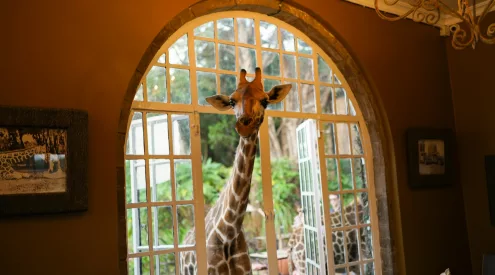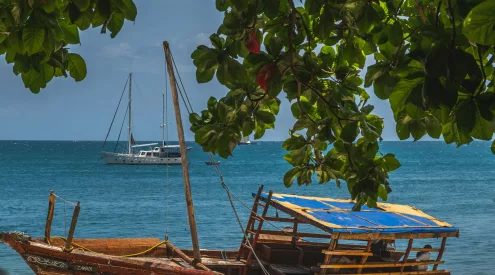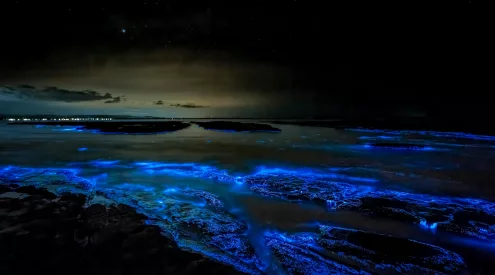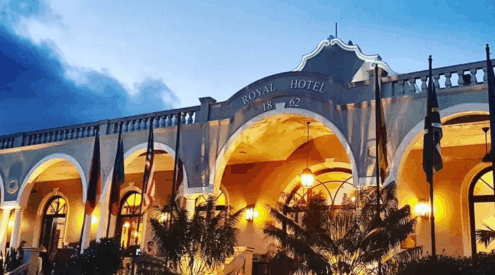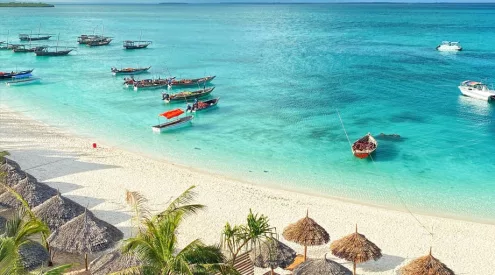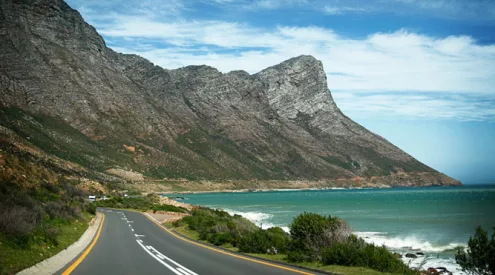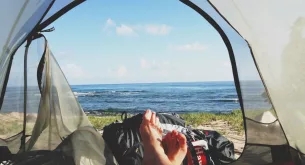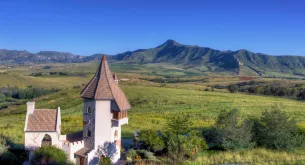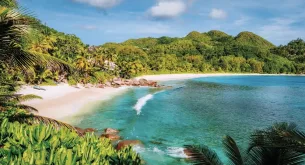Thirteen beaches along KwaZulu-Natal’s South Coast have officially reopened for swimming, marking a welcome turnaround for the region’s tourism sector.
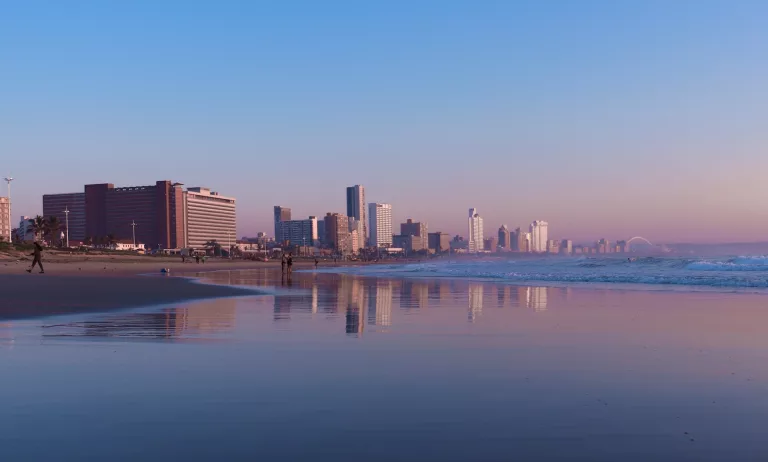
Olivia Pedler/Unsplash
The announcement came from the KwaZulu-Natal Sharks Board Maritime Centre of Excellence after close monitoring of the annual sardine run revealed the main shoals have now moved offshore, significantly reducing the likelihood of encounters with marine predators, as reported by Travel News Africa.
According to the Sharks Board, current conditions pose minimal risk to bathers, and the decision to reopen beaches comes after ensuring swimmer safety. For tourism operators, it’s a major green light.
Many local businesses rely on peak season visitors, and this development gives travel agents across the continent confidence to promote the region once again.
Which beaches are open?
Travellers can now enjoy the warm Indian Ocean waters at:
- Hibberdene
- Umzumbe
- Banana Beach
- Sunwich Port
- South Port
- Umtentweni
- St Michaels on Sea
- Uvongo
- Margate
- Ramsgate
- Southbroom
- San Lameer
- Trafalgar
From laid-back surf towns to family-friendly shores, these destinations offer something for everyone—beach bars, nature trails, top surf breaks, and vibrant promenades. Travel agents can use this variety to tailor packages for both families and solo adventurers looking for an easy coastal escape.
What’s still closed?
As a precaution, five beaches remain temporarily closed:
- Umkobi (SYSU)
- Glenmore
- Leisure Bay
- T.O. Strand
- Port Edward
These areas are still under close observation due to residual sardine activity, which may attract predators. Updates will be issued as conditions change—so it’s worth keeping an eye on official advisories.
ALSO READ: New tourist border crossing opens between Kruger and Zim
The sardine run: Nature’s spectacle
The annual sardine run — often described as “the greatest shoal on Earth”—draws a host of marine predators, including dolphins, sharks, and seabirds. While this natural migration offers incredible wildlife viewing offshore, it does require temporary beach closures to maintain public safety.
The Sharks Board plays a key role in this balance, deploying shark safety gear such as nets and SMART drumlines equipped with sensors to monitor shark presence in real time. Their system blends safety with conservation, ensuring marine ecosystems are respected even as tourism flourishes.
Why this matters for travel planners
For African travel agents, the reopening signals a strategic opportunity. KZN’s South Coast offers more than just beaches—from lush gorges and golf courses to cultural heritage routes and charming villages. With beach access back on the cards, agents can confidently promote the full spectrum of South Coast travel experiences.
Agents are also encouraged to highlight the ongoing efforts by the Sharks Board in ensuring beach safety and marine protection—a selling point for cautious travellers and families.
Wildlife opportunities still abound
Even as the sardine shoals shift offshore, boat-based excursions still offer thrilling sightings of feeding frenzies, diving seabirds, and pods of dolphins. Travel agents can tap into these seasonal spectacles by promoting guided marine tours or eco-experiences that put visitors in the front row of nature’s show.
Staying informed
As beach conditions continue to evolve, the KwaZulu-Natal Sharks Board will provide regular updates. Tourism professionals are advised to follow their alerts and communicate changes to travellers to ensure a smooth, safe, and sun-soaked KZN holiday.
Follow us on social media for more travel news, inspiration, and guides. You can also tag us to be featured.
TikTok | Instagram | Facebook | Twitter
ALSO READ: China streamlines visa process with new online system

